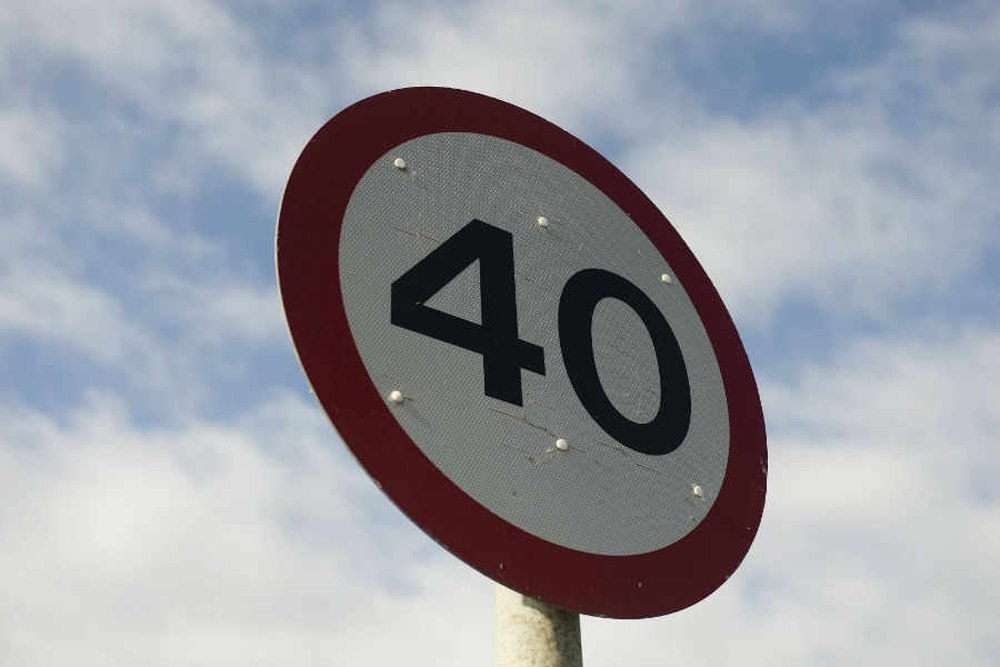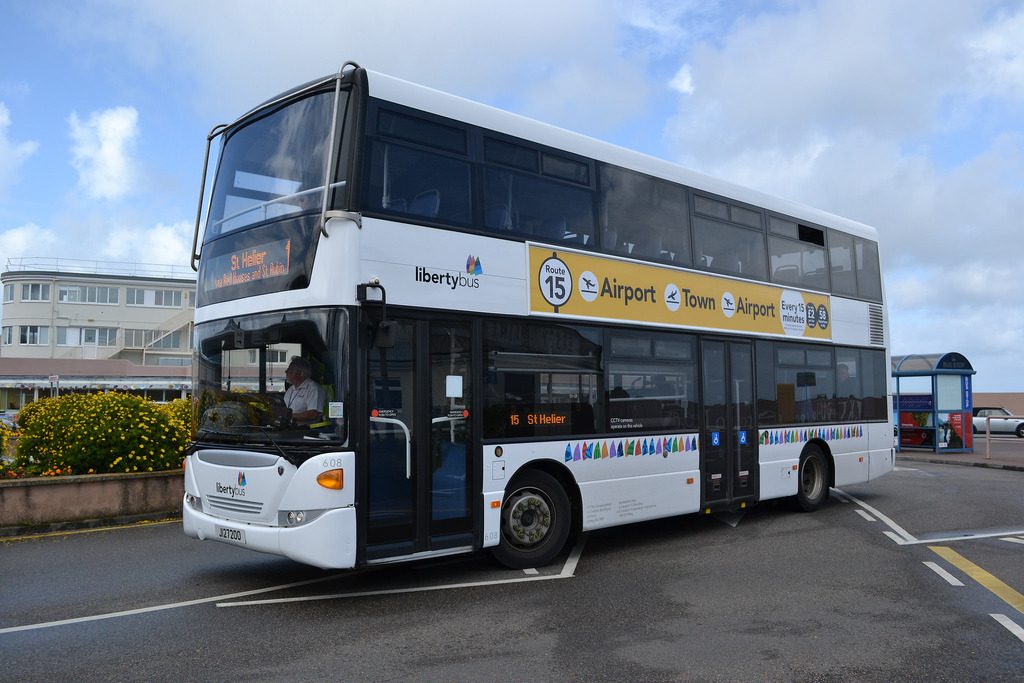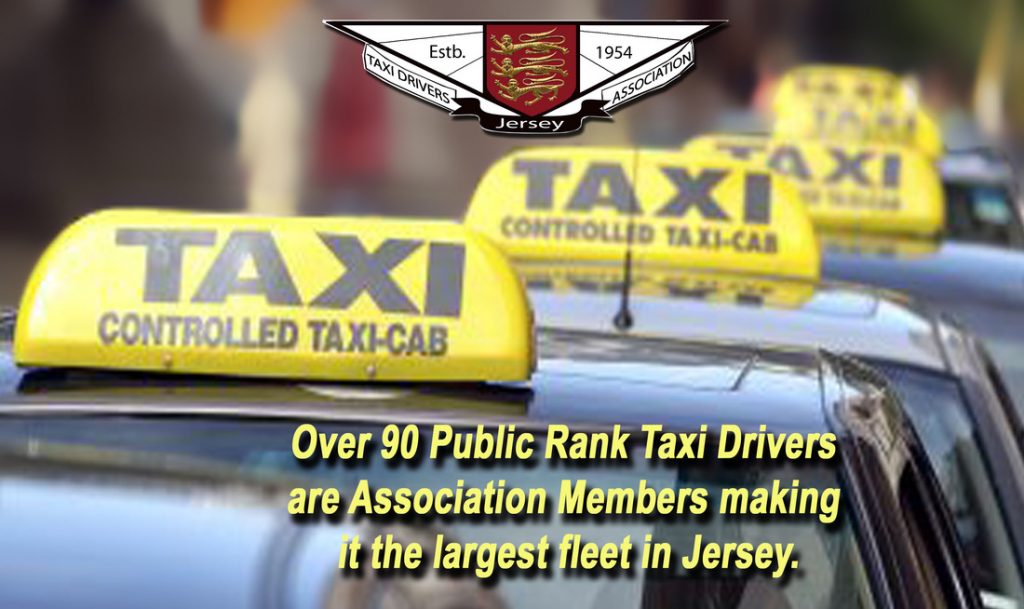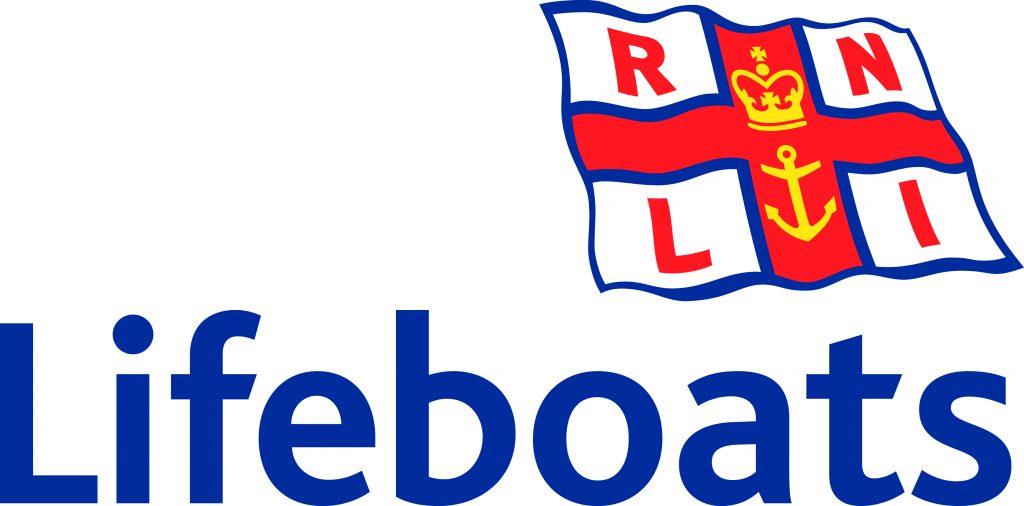Vehicle Security – Do not leave anything of value on view such as mobile phones; sat-navs; laptops; handbags; wallets; coins; shopping; vehicle documents, such as registration documents.
The top speed limit in Jersey is 40mph, but much lower limits are also in place around the Island, particularly in built-up areas. There are many ‘part-time’ 20mph zones around schools, and our green lanes have just a 15mph speed limit. A “Filter in turn” system is unique to the Channel Islands and often an area of confusion for road users in Jersey as it does not comply with the rules of a roundabout. The protocol for filtering in turn means that you just literally take it in turns at one of these junctions. There are only a few such junctions left in Jersey with the most used being on the coast road between St Helier and St Aubin at the junction with Beaumont Hill. We are very courteous here in Jersey and will often note your foreign plates or H car symbol and assist you by gesturing politely when it is your turn. You will also note that the Traffic lights in Jersey will change directly from Red to Green with no Amber in between.
Anyone wishing to hire a car in Jersey must meet the following criteria:
(b) have had a full driving licence for at least one year
(c) have not received any endorsements or have been disqualified for either dangerous driving or driving over the alcohol limit within the previous five years.
Anyone wishing to drive in Jersey must also have a valid Certificate of Insurance and a valid driving licence
If you have the misfortune to be involved in an accident that results in damage or injury, you must stop and immediately report it to a police officer on 01534 612612 or 999 in an emergency. Don’t move your car until instructed by an officer. If required, you must provide your name and address and the name and address of the owner and the registration mark of the vehicle as well as details of insurance.
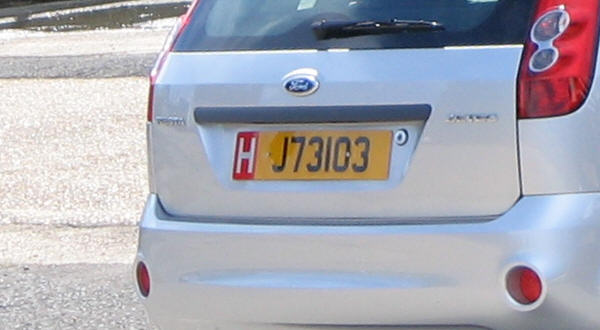
There are a number of different restrictions and methods of paying for parking in Jersey which can result in a parking fine if not adhered to. Please follow the link below for information on Parking Discs & Pay cards (and where you can buy them), information on Disabled Parking for Blue Badge holders and other parking payment systems and parking fines
Liberty Bus offer an excellent service to help you travel around the island with information on planning your trip and how to reach the many attractions on the island showing their location, route and timetables to ensure you can make the most of your visit. Multi-journey passes and travel card deals are especially designed to help you see as much as possible during your stay cost effectively. Liberty Buses also have easy-access ramps and dedicated spaces for all types of wheelchairs and some small varieties of mobility scooter can also be accommodated with a permit to ensure safe travel.
There are a number of major airlines that operate a service from the UK to Jersey (JER) including Blue Islands, EasyJet and British Airways. Further flight information can be found by following this link
For information regarding customs requirements Visa and Passport
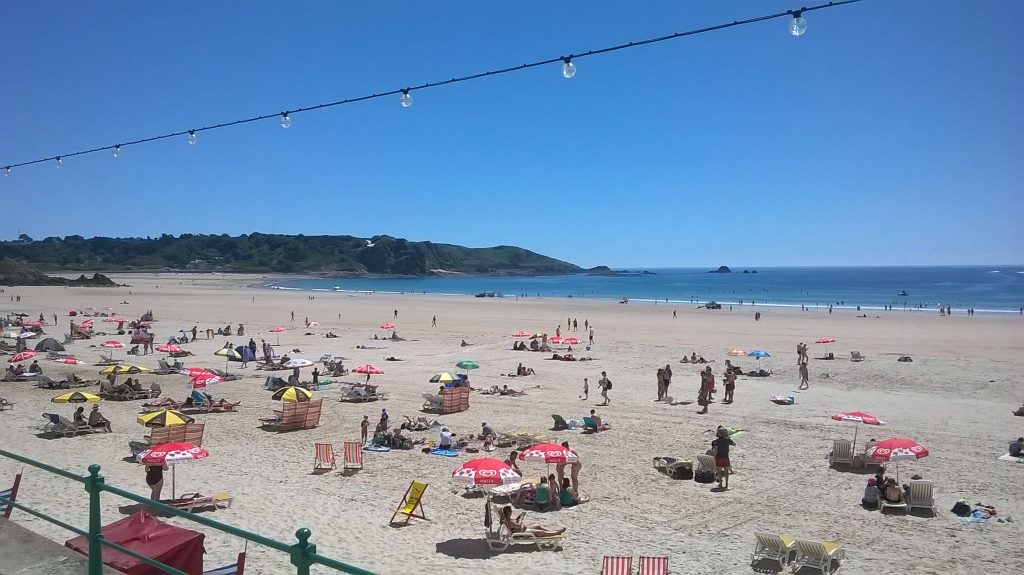
Jersey has the third largest tidal range in the world, with a range of over 12 meters. Along the south-east coast of the island the tide can recede for over a mile and a half. It is essential that anyone spending time on the coast is aware of this and checks the tide times before heading out, as it is easy to become cut-off by the tide. Tide tables and weather forecasts are available online
• Check weather and tide times
• Always keep an eye on the tide as it can move faster than you expect. Leave plenty of time to make it back to the shore.
• Know your limitations, some areas are best explored with someone who has local knowledge.
• Have a means of calling for help on you, such as a mobile phone or VHF radio.
• Don’t go on your own and tell someone ashore of your plans.
• Be able to explain where you are.
• If you need help, dial 999 and ask for the Coastguard.
Rip currents can occur on any beach where breaking waves are present. They are formed when waves push water up the beach, this water needs to find a way back out to sea and it flows back outwards through deeper channels.
• They can travel at speeds faster than an Olympic swimmer
• Look for discoloured / choppy water, a debris line and fewer breaking waves
• They can travel up to 200m from shore
• Stay calm and float – Raise arm/shout to attract attention
• Swim parallel to shore, not against current as you will become exhausted
• Once out of the rip current swim back into shore
• If you see someone in trouble, raise the alarm, dial 999 and ask for Coastguard or tell a Beach Lifeguard.
• Throw something that floats, such as a lifebuoy
• Never enter the water to rescue someone yourself
If you are heading to the beach it is always recommended to visit a beach patrolled by beach lifeguards. A number of Jersey’s beaches are patrolled by beach lifeguards during the summer months.
The RNLI beach lifeguards patrol four beaches in Jersey. St Ouen’s beach is patrolled from the beginning of May until the end of September. St Brelade’s, Greve de Lecq and Plemont have lifeguards on duty from the middle of May to the end of September.
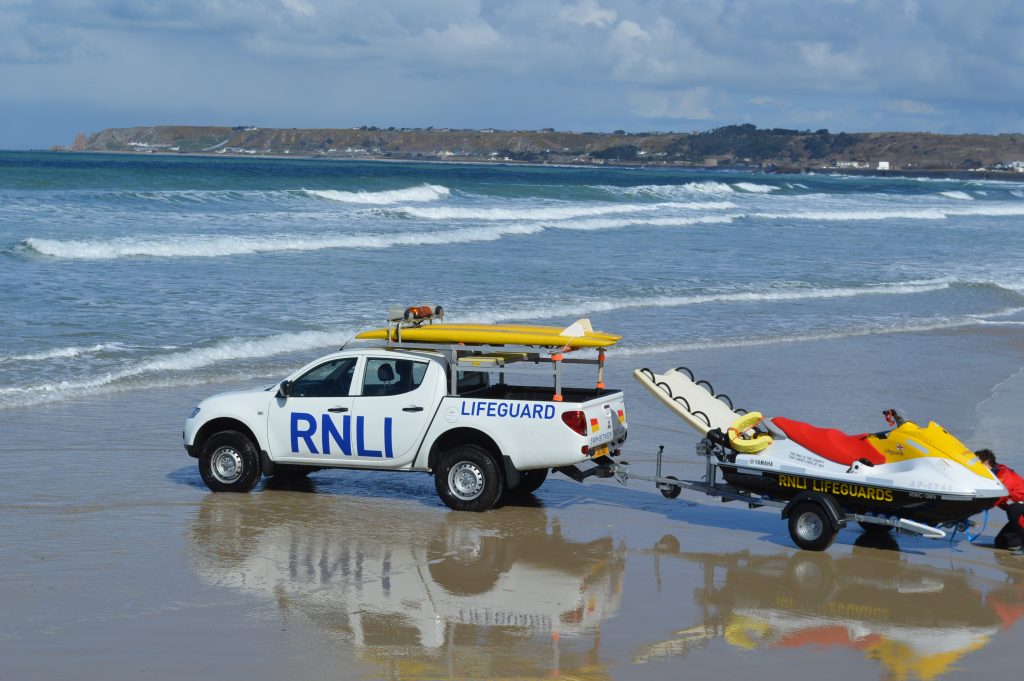
RNLI lifeguards also patrol St Ouen’s (Le Braye) during the Easter and October half terms, providing a safe place to enter the water for those people making the most of the spring and autumn conditions.
Lifeguards also patrol Havre des Pas Bathing Pool in St Helier during the summer months.
While in the sea, it’s important to remember these safety tips:
• Always read and obey the safety signs, usually found at the entrance to the beach. These will help you avoid potential hazards on the beach and identify the safest areas for swimming.
• When on a lifeguarded beach, find the red and yellow flags and always swim or body board between them – this area is patrolled by lifeguards. If red flags are shown, the water is not safe to enter.
The RNLI has a host of safety advice for people taking part in a range of water activities, from kitesurfing and swimming to sailing and diving. For more information on safety
Many visitors to Jersey will want to take part in the various Water Sports available around the island. All local concessions offering water sport activities and hire are licensed by Jersey Harbours.
If you are visiting the island and using your own equipment, consider asking a local club or similar for advice about conditions in Jersey. For more information regarding Safety at Sea
For more information regarding Safety at Sea
It is also important to note that visitors to the island will be required to pay for any treatment that may be required in the unfortunate event of illness or an injury, this includes travellers from the UK. All visitors are therefore strongly advised to ensure that they have adequate health and medical insurance before travelling to the island.
Cliff-top walks
Popular coastal paths and headland walks present great opportunities for walking and enjoying the scenery. However there is always danger from coastal erosion, falling rocks and from the risks of falling over the cliff edges. The Coastal Path is maintained to reduce these risks but every care should be taken especially in poor visibility. The Coastguard service should be alerted in the event of danger to life – call 999 and ask for Coastguard or Ambulance as required. Dog friendly advice
Dog friendly advice
If you are planning to bring your dog on holiday to Jersey it is essential that you confirm your holiday accommodation provider’s policy on accepting pets before you leave home. Consider what to do with your dog whilst visiting attractions or eating in restaurants that don’t welcome pets, and how you are going to travel around Jersey.
For Dog Friendly places click HERE
Never leave your dog unattended in a vehicle, even for a short while, when its warm or hot outside. The temperature inside your car will double that outside in 6-10 minutes. Dogs will quickly suffer from heat exhaustion and possibly die. If you do see a dog left in a car on a warm day and it appears to be distressed, call the JSPCA on +44 1534 724331 or the Police on +44 1534 612612. They will take the appropriate action and, if necessary, break into the car to release the animal. If you should have to leave a dog in a car for a short time, leave a note stating your time of return. AND RETURN ON TIME! Otherwise an embarrassing rescue operation may be launched by a concerned passer-by. Dogs, particularly elderly ones, should be exercised in the early morning and late evening to avoid over-exertion in hot weather. All dogs are required by law to wear a collar and tag bearing the name and address of the owner. If you are on holiday, it is a good idea to have a temporary tag with your holiday address on it. If you lose your dog, please contact the local Parish hall as soon as possible. For information regarding the excercising of dogs and horses on Jersey`s beaches, please click here. Dogs are also allowed in many of the parks, but specific rules may apply. It is also your duty to clean up after your dog and a fine can be imposed if you fail to comply!
Dogs, particularly elderly ones, should be exercised in the early morning and late evening to avoid over-exertion in hot weather. All dogs are required by law to wear a collar and tag bearing the name and address of the owner. If you are on holiday, it is a good idea to have a temporary tag with your holiday address on it. If you lose your dog, please contact the local Parish hall as soon as possible. For information regarding the excercising of dogs and horses on Jersey`s beaches, please click here. Dogs are also allowed in many of the parks, but specific rules may apply. It is also your duty to clean up after your dog and a fine can be imposed if you fail to comply!
Mobile phone services
Everyone at Sure hopes you have a wonderful stay in Jersey. Whilst you are here, we know you’ll want to stay connected with your friends and family at home, so we’ve prepared this short guide to help you stay in touch.
Mobile networks
None of the UK mobile operators have networks here, instead there are three local mobile networks. This means that when you visit Jersey, you will need to use one of the island’s own networks and that all of your calls and data will be charged at roaming rates (set by your network provider).
How to connect to a Jersey mobile network
When you arrive in Jersey, your phone will probably search for and connect to one of the island’s networks automatically, however, if after a few minutes, the phone isn’t receiving a signal, then you should try to connect manually.
To do this, you should go to your phone’s settings menu, then select mobile networks, then network operators.
A list of available operators should appear and we strongly suggest you choose Sure!
Data Roaming
Taking your phone abroad? Things are simple when you’re travelling abroad with Sure, with roaming partners all around the world. Roaming is how we describe calling, texting and using data while you are abroad, including the UK.
Travel Boosters
If you’re a Pay Monthly mobile customer, our handy Boosters can make using your phone at home or abroad even better value. Add them for a month, or as long as you like. Just log in to your My Sure account and go to Manage Add Ons to give your plan a boost!
Click here for more information.
Using the Internet on your phone
Even if you have turned off data roaming on your phone, you will still be able to connect to the Internet by using your phone’s Wi-Fi capabilities. Most public Wi-Fi networks are free to use but if you log on to one that charges, it will advise you of this and ask for payment details before letting you onto the network.
Buy a prepaid SIM card to avoid roaming charges
One easy way to avoid roaming charges is to buy a Pay as You Go SIM card to use temporarily while you are here.
Sure SIM cards are free of charge; you just need to add a minimum of £5 credit to start using it. This will give you a local Jersey number and will enable you to use 4G and 3G Internet services, and make calls at non-roaming rates. Just insert the card into your phone, replacing the existing card (which you must keep in a safe place), and away you go!
You can find out more about Sure’s Pay As You Go price plans, once you have your SIM card, you can quickly and easily top-up online – All top-ups also include some free minutes and texts (including making calls to the UK) and a free data allocation.
You can buy a Sure prepaid SIM card or a value phone with a SIM card by purchasing a Sure Phone in a Box at the Sure Store in King Street, St Helier. Alternatively, you can buy a low cost ‘phone in a box’ from one of our many retail partners located throughout the island which includes a ready to use phone.
In Jersey we take our recycling very seriously as we hope you do at home. In order to help us keep Jersey a super holiday destination and free from litter and environmental damage, we would ask you to recycle the following items during your stay:
Glass bottles and jars
Newspapers and magazines
Cardboard
Brochures
Metal drinks and food cans
Plastic bottles
Textiles
You will find a comprehensive guide of what and where to recycle by following this link
Main image courtesy of Yuris Belovs



